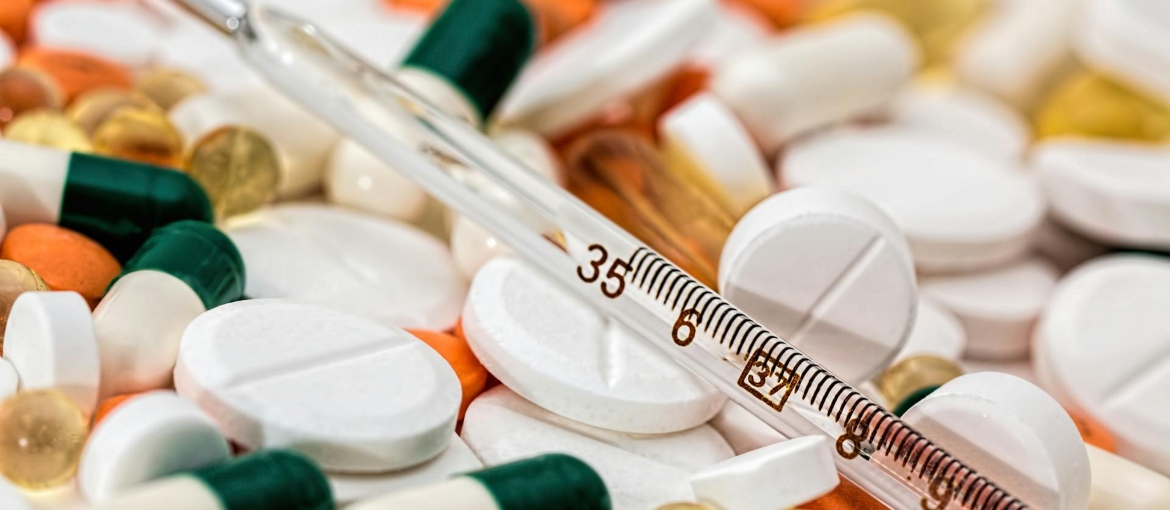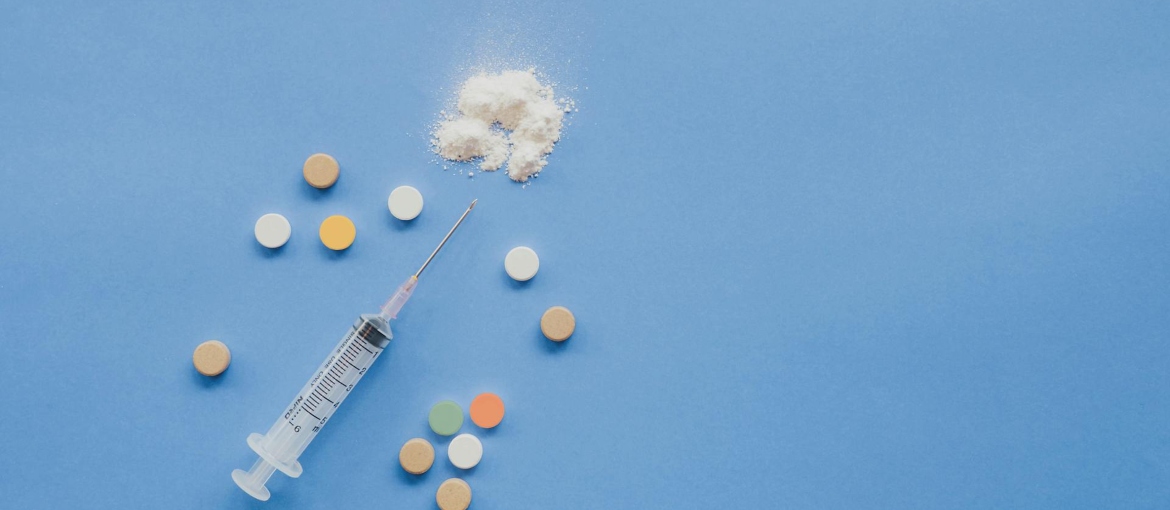Heroin addiction and bipolar disorder are two serious conditions that can deeply affect a person’s life. Both can lead to many emotional and physical challenges. So, when someone has both conditions, it is called a dual diagnosis. Treating each issue separately is not enough. Heroin addiction and bipolar disorder often feed off each other, making it harder to recover. Understanding the connection between bipolar disorder and heroin use is essential for successful treatment. It’s important to address both conditions at the same time. By offering evidence-based therapies, medication management, and emotional support, heroin rehab centers help people stabilize their moods and reduce cravings. So, let’s explore the link between bipolar disorder and heroin addiction, why it’s so important to treat both, and the best ways to manage both conditions for lasting recovery.
Is There a Correlation Between Bipolar and Addiction to Heroin or Any Other Drugs?
There is a strong correlation between bipolar disorder and addiction. Many people with bipolar disorder are at a higher risk of developing substance use problems. So this is because the extreme mood swings that come with bipolar disorder can make it difficult to cope with everyday life. Also, during manic episodes, people may feel overconfident, energetic, and impulsive. This can lead them to look out for drugs or alcohol, like heroin, to enhance their mood or to act on risky impulses.

On the other hand, during depressive episodes, individuals with bipolar disorder may feel deep sadness, hopelessness, or emotional pain. So, to numb these feelings, they might turn to heroin or other substances for relief, even though it only offers short-term comfort. Looking for help from a drug rehab center, such as a drug rehab Athens OH has to offer, is important in breaking this cycle. These centers offer specialized care for individuals struggling with both bipolar disorder and substance use, ensuring that both conditions are treated together.
The link between mental health and addiction is clear. The mood swings in bipolar disorder can make people feel out of control, and using substances like heroin may seem like a way to cope. However, drugs only make the problem worse in the long run. So, heroin may temporarily relieve some feelings, but it can also increase the severity of mood swings, creating a dangerous cycle. This cycle of using substances to manage emotions can worsen both addiction and mental health issues, making recovery more difficult.
Bipolar Symptoms and Heroin Use
People with bipolar disorder experience extreme mood changes. During manic episodes, they may feel high energy, overly confident, and impulsive. So, these feelings can make them more likely to engage in risky behaviors, including using drugs like heroin. Heroin can give a quick rush of euphoria, which may seem appealing during the high-energy phase of mania. The impulsivity often seen during this time makes it harder to resist the temptation to use substances, even though it might cause harm later.

On the other hand, during depressive episodes, people with bipolar disorder often experience feelings of :
- sadness
- hopelessness
- a lack of energy
They may feel overwhelmed by their emotions and unable to handle the weight of their thoughts. To numb this pain, they might turn to heroin or other substances as a form of escape. So, heroin can temporarily dull the emotional pain that comes with depression, but this relief is only short-lived. After the effects wear off, the person may feel worse than before, deepening the depressive symptoms and creating a cycle of addiction. Heroin use can also make bipolar symptoms worse. During a manic phase, the use of heroin may increase the intensity of impulsive actions, leading to even more risky behavior.
In a depressive state, heroin use can lead to a deeper crash in mood, making the depression harder to manage. Because heroin use worsens both mood swings and addiction, people with bipolar disorder need to get help that addresses both issues. Similarly, meth use can make bipolar symptoms worse, making mood swings harder to control. Meth can increase agitation, paranoia, and impulsiveness during manic episodes, and it can make depression worse during the low phases. So, it is important for those struggling with both bipolar disorder and meth addiction to look for treatment at a specialized rehab center, such as a meth rehab center West Virginia provides.
Risks of Mixing Bipolar Disorder and Heroin
Mixing bipolar disorder and heroin is very risky. Heroin can make the mood swings of bipolar disorder worse. So, during manic phases, the drug can increase impulsive behavior and dangerous actions. In depressive states, it can deepen feelings of sadness and hopelessness. Heroin use also interferes with medications for bipolar disorder, making them less effective. That’s why addiction treatment centers in West Virginia offer essential support for people struggling with both heroin addiction and bipolar disorder.

What Drugs Should Bipolar People Avoid?
People with bipolar disorder should be careful with the drugs they use, as some can make their symptoms worse. Heroin is one of the most dangerous substances for people with bipolar disorder. It can interfere with mood stability and increase the risk of both manic and depressive episodes. During a manic phase, heroin can lead to even more impulsive and risky behavior. In a depressive state, it may temporarily numb the emotional pain but eventually make feelings of sadness much stronger.
Other drugs that should be avoided include alcohol and other stimulants, such as cocaine. Alcohol can worsen depression and may also interfere with medications used to treat bipolar disorder. It can make mood swings more extreme and lead to poor decision-making. Cocaine, like heroin, can cause intense mood changes and increase the likelihood of manic episodes. Certain prescription medications can also be risky for people with bipolar disorder.
Bipolar Disorder and Antidepressants
Antidepressants may sometimes trigger manic episodes in people with bipolar disorder if they are not taken with a mood stabilizer. This is why it’s important always to follow a doctor’s instructions when taking any medication. Other drugs, such as sedatives or benzodiazepines, can also be dangerous if abused. So, if someone is struggling with opioid use, looking for help from an opiate rehab center can be an important step in recovery. These centers specialize in treating opioid addiction and can provide the support needed to manage both substance use and mental health conditions like bipolar disorder. They also offer a safe environment where individuals can receive the necessary care, therapy, and medication management to work through both their addiction and mental health challenges.

The best way for someone with bipolar disorder to avoid these risks is to work closely with their doctor. A medical professional can help create a treatment plan that focuses on managing both bipolar disorder and any other health concerns. Staying away from drugs like heroin, alcohol, and cocaine is key to maintaining a stable mood and avoiding setbacks in mental health. For those struggling with addiction, looking for help from inpatient drug rehab centers in West Virginia can be an important step. In a secure and encouraging setting, these facilities offer the care and counseling people need to deal with their addiction and mental health issues.
Evidence-Based Therapies for Heroin Addiction and Bipolar Disorder in Rehab
Evidence-based therapies have been proven through research to be effective in treating addiction and improving mental health. Those therapies are:
- Cognitive Behavioral Therapy (CBT)
- Dialectical Behavior Therapy (DBT)
Cognitive Behavioral Therapy (CBT)
One of the most common therapies used is Cognitive Behavioral Therapy (CBT). CBT helps individuals recognize and change negative thinking patterns. So, for someone with bipolar disorder, CBT can teach them how to manage mood swings and deal with stress in healthier ways. It also helps them understand how their thoughts and feelings influence their actions, which can be important in overcoming addiction.

Dialectical Behavior Therapy (DBT)
Another important therapy is Dialectical Behavior Therapy (DBT), which focuses on teaching coping skills. DBT helps people with bipolar disorder learn how to manage intense emotions and deal with the ups and downs of their moods. It also provides skills to handle difficult situations without turning to substances like heroin. DBT can be especially helpful in preventing relapse and improving emotional regulation.
Management of medications
Medication management is also a key part of evidence-based treatment. For people with bipolar disorder, stabilizing their mood with medications like mood stabilizers or antidepressants is crucial. In rehab, medical professionals can ensure that these medications are taken correctly and are working effectively. When combined with therapy, medications can help keep mood swings in check and reduce the desire to self-medicate with substances like heroin. A Partial Hospitalization Program West Virginia offers is an intensive level of care that combines therapy and medication management. This program gives participants structure and support while letting them go home in the evenings so they may concentrate on their addiction recovery and mental health.

Addiction Treatment Centers for Heroin Addiction and Bipolar Disorder in West Virginia
Addiction treatment centers in West Virginia offer essential support for people struggling with both heroin addiction and bipolar disorder. These centers specialize in treating dual diagnosis, where both mental health and addiction issues are addressed together. Since heroin addiction can worsen the symptoms of bipolar disorder, it’s important to treat both conditions at the same time. In these centers, individuals receive personalized care tailored to their needs, helping them manage both their addiction and mental health.
The treatment programs in West Virginia focus on a combination of therapy, medication, and support.
Therapists commonly use Cognitive Behavioral Therapy (CBT) to help people recognize and change harmful thinking patterns that lead to substance use and mood swings. Therapy also helps individuals develop healthier ways to cope with stress and emotions, which is important for preventing relapse. Medication management is another key component. For those with bipolar disorder, proper medication can help stabilize moods and reduce the urge to self-medicate with heroin.
Group therapy is often part of the treatment plan. It allows individuals to share their experiences and learn from others who are going through similar struggles. This sense of community can be powerful in helping people feel understood and supported. So, social connection also plays a key role in recovery, as it reduces feelings of isolation and builds a strong support network.

Addiction treatment centers in West Virginia are staffed by professionals who understand the complex relationship between heroin addiction and bipolar disorder. The goal is to help individuals achieve long-term recovery by addressing both conditions. With the right care, support, and treatment, people in West Virginia can find a path to a healthier and more stable life. These centers provide the tools needed to manage addiction, control mood swings, and break the cycle of substance abuse.
The Final Thoughts on Managing Heroin Addiction and Bipolar Disorder: A Dual Diagnosis
Managing both heroin addiction and bipolar disorder is challenging but possible with the right treatment. These two conditions are closely linked, and not addressing both at the same time makes recovery much harder. Through personalized care, group therapy, and proper medical guidance, people can break free from the cycle of addiction and achieve a more stable life. Looking for help from professionals who understand the link between bipolar disorder and heroin use is essential. With the right support, recovery is possible, and a healthier future can be within reach!
References:
https://www.researchgate.net/publication/259848851_Do_bipolar_patients_use_street_opioids_to_stabilize_mood
https://www.sciencedirect.com/science/article/abs/pii/S0924933811719472
https://pmc.ncbi.nlm.nih.gov/articles/PMC3473306/



